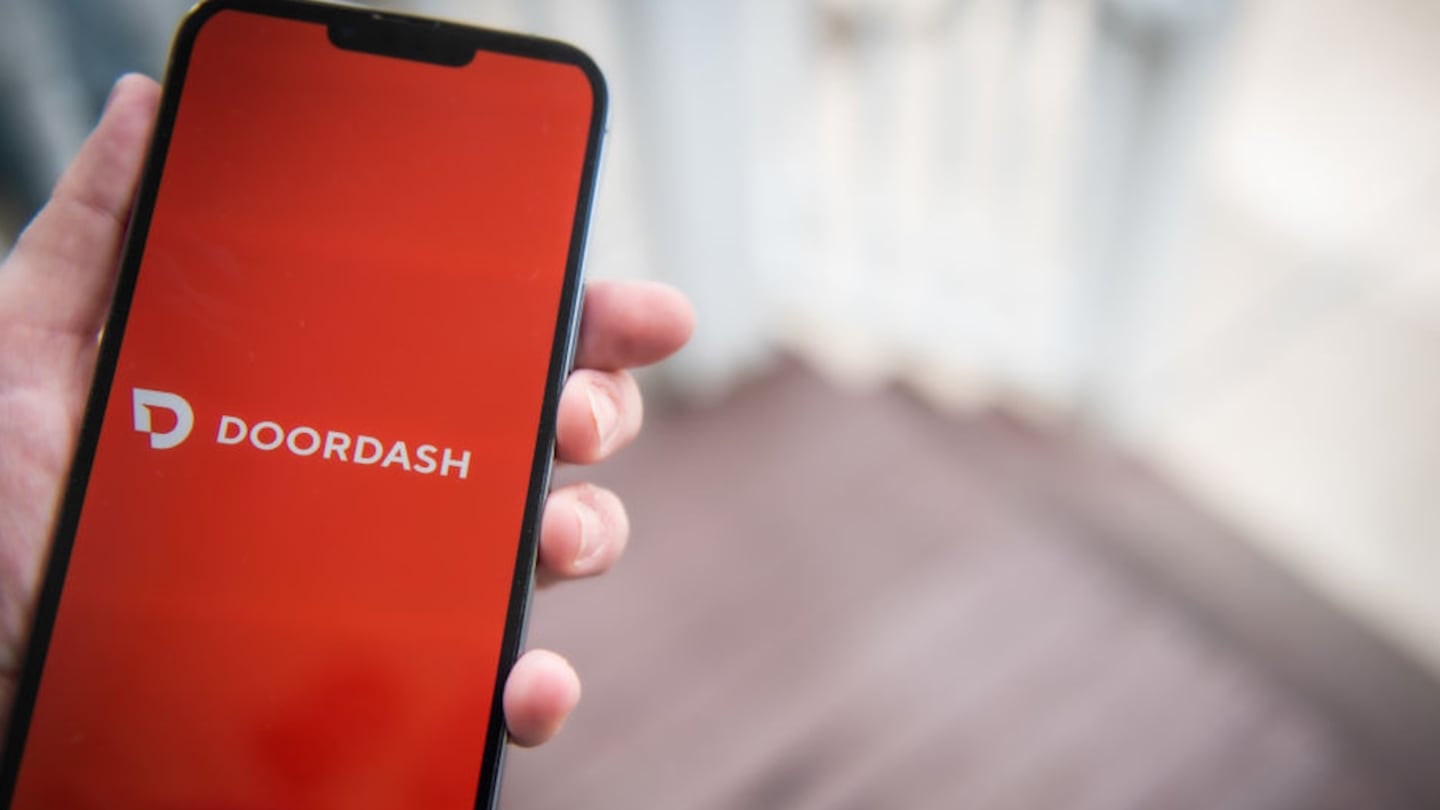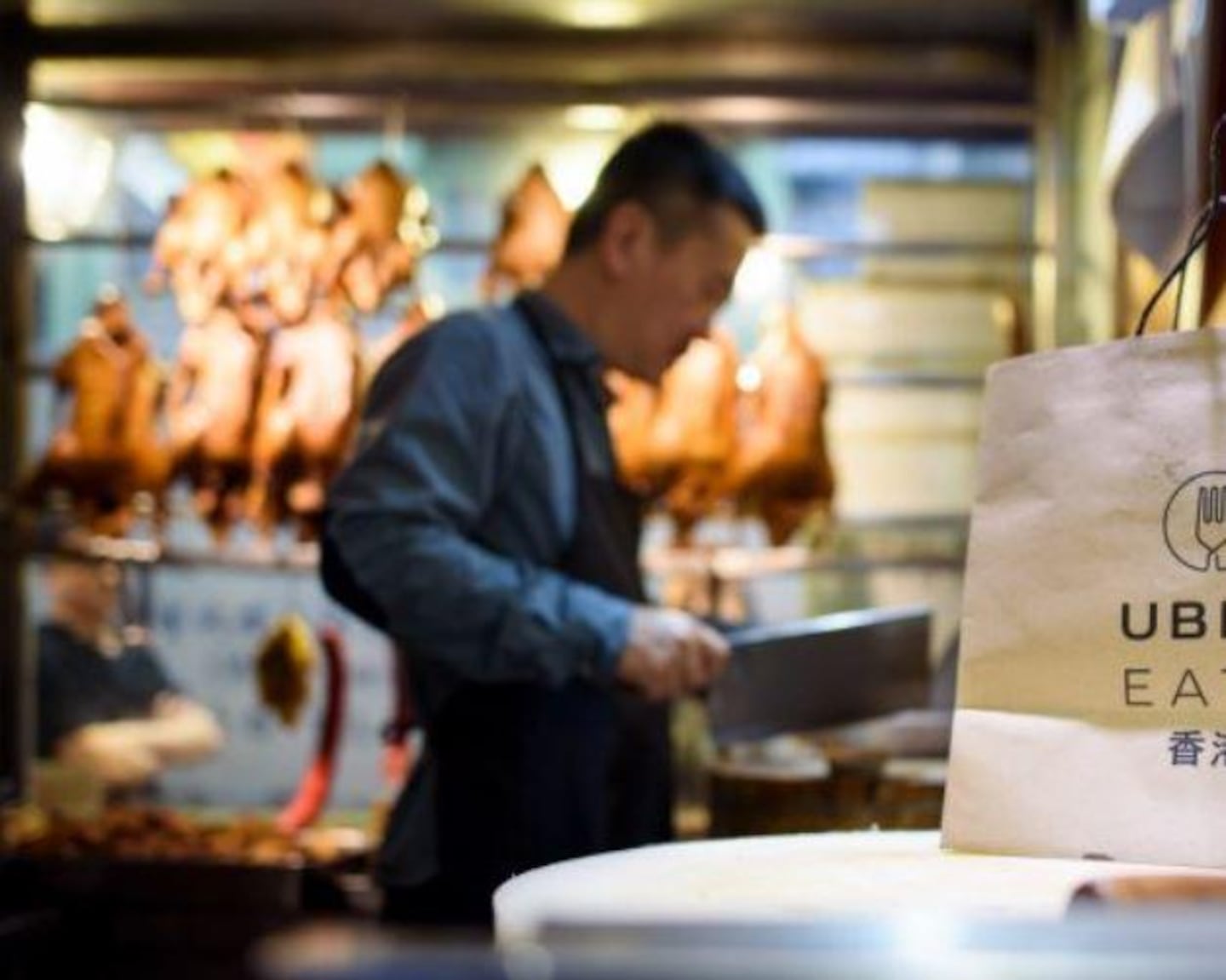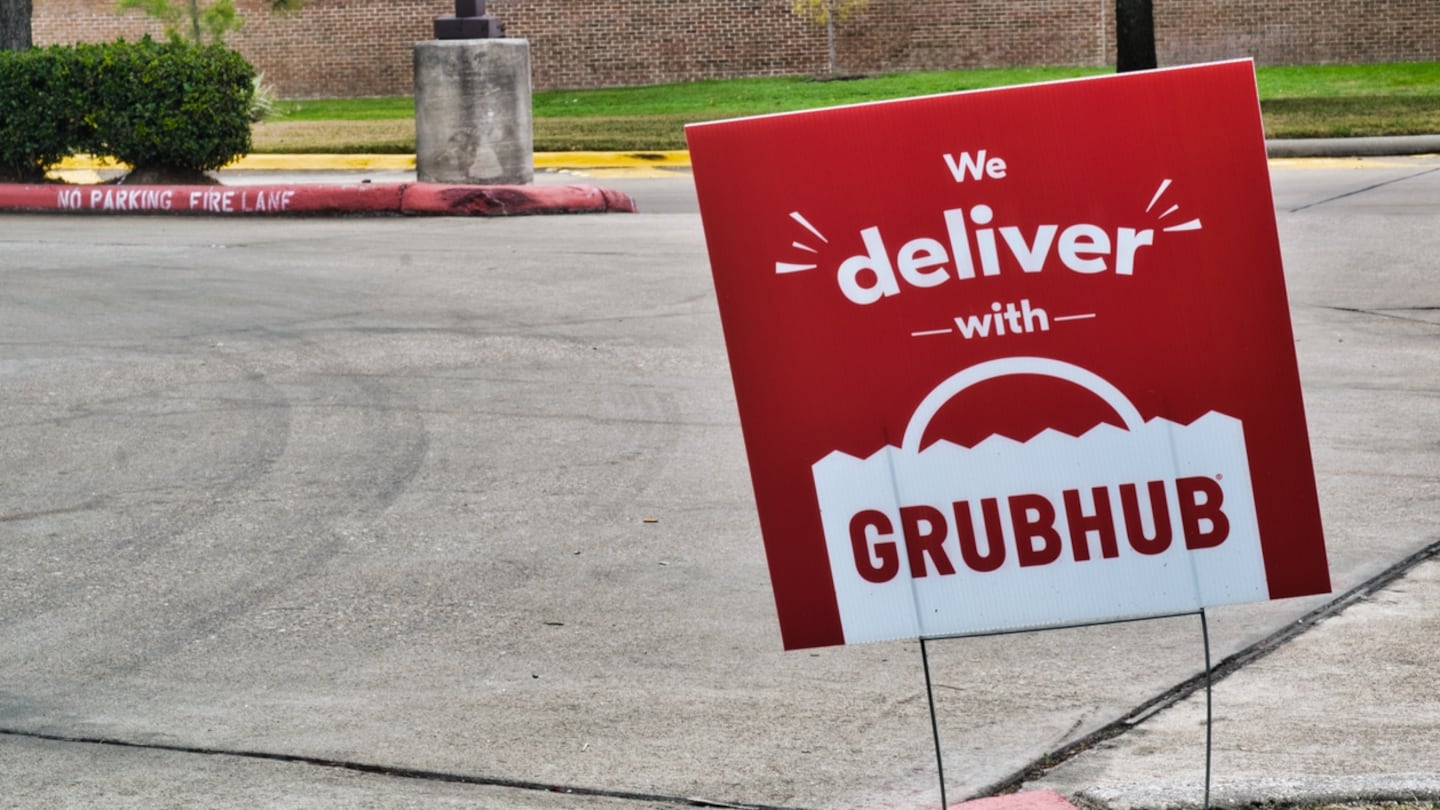BOSTON — Boston Mayor Michelle Wu said Monday she has filed an ordinance with the Boston City Council requiring food delivery apps such as DoorDash, UberEats, and GrubHub to get a permit to operate in the city.
The permit would require the companies to have liability insurance coverage for all drivers using their platform, including those using motorcycles, mopeds, and electric scooters, and to share aggregate data on delivery trips.
The ordinance aims to address growing concerns for public safety amid an “alarming increase in unlawful and dangerous” actions of delivery drivers on Boston streets, city officials said.
“This ordinance is an important step toward making app deliveries safer for our city’s pedestrians and drivers on our streets, and toward ensuring delivery app drivers have insurance coverage from the large, national companies they work for,” Wu said in a statement on Monday.
The city first sent a letter to the CEOs of DoorDash, UberEats, and GrubHub in June 2024, calling for more accountability in response to growing resident complaints around public safety on Boston’s streets.
“The City of Boston is writing to you as a leader in the food delivery business in Boston because of an alarming increase in unlawful and dangerous operation of motorcycles, mopeds, and motorized scooters by drivers offering delivery services for your companies,” Boston Police Commission Michael Cox wrote in the June 3, 2024 letter, which is co-signed by Boston’s Chief of Streets Jascha Franklin-Hodge.
“Many of these drivers are operating unregistered vehicles. We have witnessed widespread and ongoing incidents of running red lights, driving on city sidewalks, driving the wrong way down one-way streets, driving at speeds in excess of posted limits, and collisions,” Cox wrote.
“This type of operation puts the delivery driver, and any pedestrian or driver of a motor vehicle who encounters them, in imminent danger,” Cox wrote.
This new ordinance “will further address street safety concerns in an emerging industry that currently lacks regulation,” Wu said.
But the ordinance would “miss the mark” in creating safer streets and instead lead to price hikes for city families, a DoorDash spokesperson said in a statement Monday.
“We’re committed to playing our part in helping cities like Boston thrive, while promoting safety in their busiest neighborhoods,” the DoorDash statement said.
“That’s why we’ve worked at the encouragement of the City to get car Dashers off the road in efforts to reduce congestion, and supported its oversight and enforcement on dangerous riding to help keep everyone who shares Boston’s streets safe,” the DoorDash statement said.
“However, this ordinance would clearly miss the mark in its efforts to create safer streets, doing little to improve safety for Dashers or the public and creating new costs that would add price hikes for Boston families along the way,” the DoorDash statement said.
“We plan to continue working closely with Boston policymakers to help them understand the consequences of this ordinance and find more practical solutions that would actually help ensure more vibrant and safer streets for everyone,” the statement concluded.
To obtain a permit, delivery companies must submit to the city proof of adequate insurance coverage for delivery drivers and share data about deliveries, including data on unsafe and illegal vehicle actions on city streets.
This ordinance is “focused on the largest third-party delivery providers, which concentrate large volumes of traffic in certain areas of the City, particularly at certain times of day,” Wu said.
The ordinance does not apply to small businesses with a small number of delivery drivers or other types of deliveries, such as those made by FedEx, UPS, or Amazon.
“By establishing this new permit process, this ordinance will establish rules and regulations governing the oversight of third-party delivery services within the City of Boston in furtherance of the public interest, safety, and convenience,” Wu said.
Under this ordinance, coverage would be required for liability, personal injury, collision, and medical payment if any uninsured or underinsured driver is involved in a crash and would need to cover drivers using all modes of transportation, Wu said.
Currently, delivery companies are not required to hold insurance to protect uninsured or underinsured drivers.
“We hope to create an incentive for these companies to encourage safer driving instead of the current incentive–speed at all costs,” Boston’s Chief of Streets Jascha Franklin-Hodge said in a statement.
Data submitted by delivery companies, as required by this new ordinance, will help inform city officials about the types of vehicles used to complete deliveries in Boston, which restaurants experience the highest number of orders, and where and how quickly trips are completed, including routes that drivers make using illegal turns.
Currently, third-party delivery apps do not have to share information with the city detailing common delivery routes or how fast delivery drivers are driving, officials said.
“The data we collect will allow us to plan for the impacts of food delivery, rather than just reacting to double parking, unsafe operation, or congestion made worse by a high volume of deliveries,” Franklin-Hodge said. “These common-sense requirements, along with data-informed curb regulations and targeted enforcement, will contribute to a safer environment for residents and drivers.”
The new ordinance follows an uptick in complaints about third-party food delivery on Boston streets.
Residents made 105 reports through 311 about increased traffic and congestion, illegal double parking, as well as reckless and unsafe delivery drivers on scooters, mopeds, motorbikes, and e-bikes in 2024, officials said.
In 2024, at least 475 mopeds were towed, impounded, or seized.
“For too long, third-party delivery platforms have ignored the rules, prioritizing profit over safety and putting residents, pedestrians, and their own drivers at risk,” Boston City Councilor Sharon Durkan, Chair of Planning, Development, and Transportation, said in a statement.
“When I called on them to use their own data to curb their impact, they refused,” Durkan said. “This ordinance ends their indifference by requiring transparency, permitting, and insurance. Boston has no obligation to cater to tech giants who won’t play by the rules—especially when their reckless behavior endangers our streets.”
Enforcement is occurring in neighborhoods across Boston, including Copley Square, Washington Street in the downtown area, and in the Fenway.
Cox said police will continue to enforce state and local laws, and he encourages the companies running these delivery services “to partner with Boston to discourage reckless driving and ensure public safety.”
“We are safer and stronger when we work together, and that includes our partners in the business community. Each of us has a role in ensuring public safety and we are asking these corporations to do their part in helping us keep pedestrians and drivers in our City safe,” Cox said.
City officials say they’re continuing to reach out to delivery workers directly to educate them about traffic safety.
Police and the city’s Office of Neighborhood Services have distributed flyers in 11 languages to delivery workers across Boston, officials said.
This is a developing story. Check back for updates as more information becomes available.
Download the FREE Boston 25 News app for breaking news alerts.
Follow Boston 25 News on Facebook and Twitter. | Watch Boston 25 News NOW
©2025 Cox Media Group








